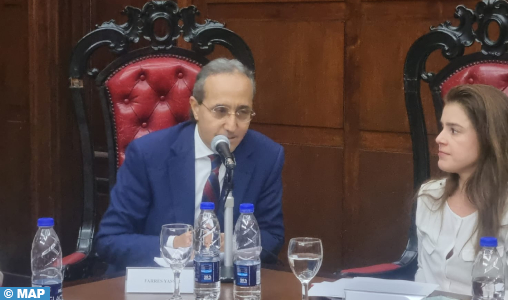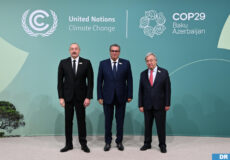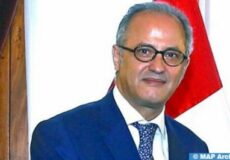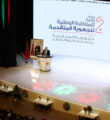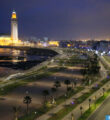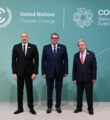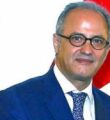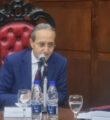Morocco Leading the Charge in Renewable Energy Transition, Says Ambassador
Buenos Aires – Morocco is at the forefront of a global shift towards sustainable energy, thanks to its ambitious strategy centered on renewable resources, according to Fares Yassir, Morocco’s ambassador to Argentina. Speaking at a panel discussion held at Buenos Aires’ Faculty of Law, Yassir highlighted Morocco’s significant strides in renewable energy over the past 15 years and its goal of becoming a major supplier of clean energy for Europe.
The ambassador emphasized that Morocco is uniquely positioned as the only African nation connected to Europe in terms of electricity, gas, and logistics. This strategic positioning, combined with Morocco’s robust energy strategy, allows it to play a pivotal role in bridging the energy needs between continents.
Yassir explained that Morocco’s energy strategy was initially driven by the country’s rising energy consumption, which accompanies its economic growth. With an annual energy bill surpassing $12 billion, Morocco recognized the need for a sustainable solution. Over the past 15 years, the country has developed extensive experience in renewable energies, leveraging its abundant natural resources—sun, wind, and water.
The Moroccan ambassador noted that Morocco’s energy strategy, initiated in 2009 under Royal High Directions, aims to achieve a 52% renewable energy mix by 2030. This strategy focuses on renewable energy, improving energy efficiency, and enhancing regional integration.
The strategy has already led to the completion or near completion of 111 renewable energy projects, increasing the country’s installed capacity to 3,950 MW—37% of Morocco’s electrical mix. Currently, renewable energy sources account for 20% of the country’s electricity production, reducing its energy dependence by 10 percentage points from 2009 to 2023.
Yassir highlighted that Morocco’s proactive approach has included significant infrastructure investments and ambitious projects that accelerate the transition to a low-carbon economy. The country has attracted around $6 billion in foreign investments over the past 12 years, and it continues to offer a simplified legal framework and attractive economic incentives to draw further investments in wind energy, natural gas, and green hydrogen.
The panel in Buenos Aires also explored energy dilemmas faced by other countries, including Argentina, Chile, Belgium, and Norway. These discussions underscored the tension between the rapid pace of economic and production demands and the urgent need to address climate change, which affects the entire planet.



